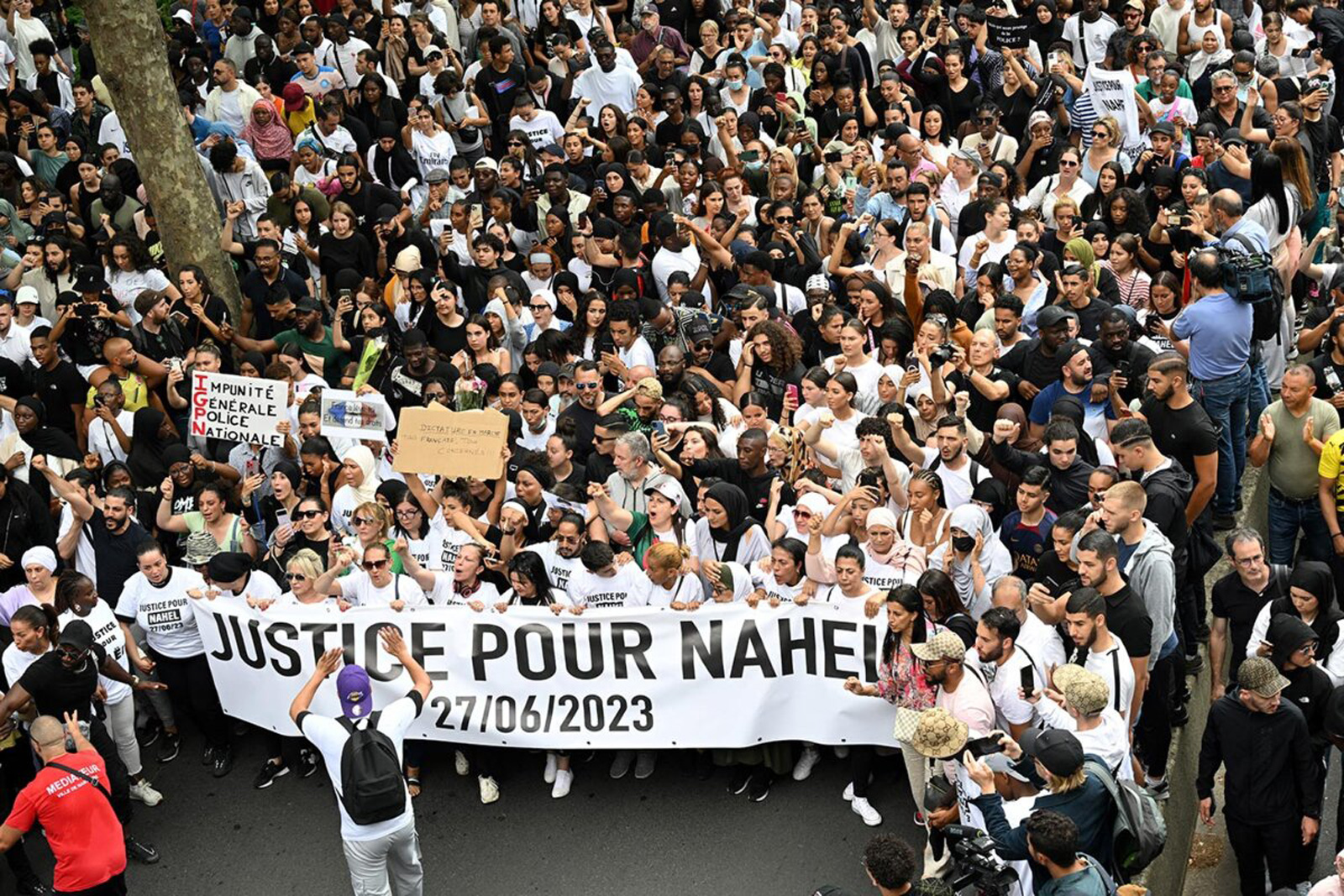
- On 27 June the French police shot a 17-year-old boy. The police appear in a video filmed by a person as he approaches the head of the young gun and shoots it. The murder awakens discomfort and discomfort, and since then the kale borroka has not ceased in many French neighbourhoods.

On the white march, convened by the mother of the young Nahel, killed by the French police, a crowd gathered on Thursday: 20,000 people according to organizers and 6,200 according to police. A great diversity prevailed: young people, the elderly, family neighborhoods, elected officials and social agents. The police were killed in the city of Nanterre in Paris on 27 June. Nahel, 17, is involved in police control.
Anger, grief and anxiety dominated the white march. Like Nahelen, Zyed, Bouna, Adama, Théo and other young people, all killed by the French police, have shouted their names. Since 2020, the French Police has killed over 130 people, according to an independent study conducted by the Bastamedia media: 40 in 2020, 52 in 2021 and 39 in last year (no data specified this year). Like Nahelen, last year he had shot another 26. The Public Safety Act passed in February 2017 has only made the situation worse, as it opens up the legal possibilities of using the weapon to the police. The prosecution incarcerates the police who have killed the young man on charges of intentional murder. In fact, a person who filmed the moment of the crime and in it appears the police approaching the young gun head and throwing.
Nahel's relatives have not been able to speak at the end of the march, because the police, with devastating gases, have scattered people before the end.
Systemic problem
In the peripheral neighbourhoods of large French cities they suffer mainly from abuse, racism and class oppression of the police. Political actors denounce "systemic racism". "My brother died because he was black, because he was called Adama Traore, he was a neighbor," he told ARGIA Assa Traore, the sister of the young man who died by the police. She went to the roots of the problem and in the interview she expressed: "We must return to the era of slavery to understand it. French colonialism remains entrenched. If you don't have a proper skin color, you don't think of it as a person. Through the struggle for my brother, we intend to overcome this logic."
In addition to the end of repression and police pressure, the agents of these neighborhoods demand the development of public services, following the path to the Mediaparts by one of them in white motion, "because the police institution is the only public service we have today". They have been demanding measures for years to combat unemployment, discrimination and social exclusion, but the situation does not improve, because the slums are only on fire. The 2005 images are burning again.
Urban areas on fire
The murder of Nahel, also described as an intentional murder by the prosecution, has re-ignited fire in Nanter and shortly thereafter in the French slums.
Over 700 people have been arrested. Over 40,000 policemen are on the street, have licensed drone sequences and during the night have taken orders to reside in several cities, the state's response is harsh, but the environment does not stop.